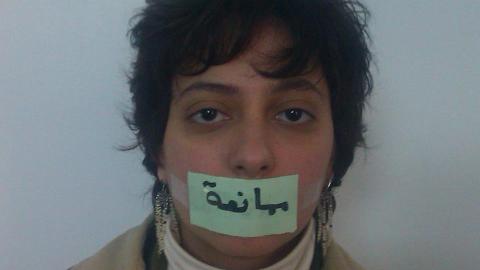The Syrian uprising saw, in parallel to the revolutionary work on the ground, the formation of a constellation of political groupings that vied to become its political representation. Yet, while women were active in the popular movement since its early days, their representation in the political sphere was symbolic at best. This status quo begs the question, why are women’s sacrifices not being rewarded?
SyriaUntold has spoken with three prominent women activists with the aim of gauging their views on the situation of women in the fourth year of Syria’s uprising. Prominent activist Khawla Dunia feels that the situation of Syrian women today is in a constant state of degradation, “not only in terms of rights, which is the case for both sexes, but, more importantly, in terms of the lack of balance between the sacrifices and the achievements.”
Blogger and activist Razan Ghazzawi posits a rhetorical and sarcastic question in response: “How many women are there in the Syrian National Coalition at the moment? and how many men?” The lowly level of representation at the political level is compared with ornamentations, rather than an active presence. Khawla Dunia believes that women are not being treated as equal in these bodies, and that they are only invited for photo-ops, rather than to give any real input in the process.

According to Dunia, this marginalization is also keenly felt by other ethnic, political and ideological minorities in Syrian society. “This is a repetition of what the regime had been doing for decades,” she adds, “a simple quota for women in the parliament or local councils, without any regard to how active or important their role is. The decision-making process is placed firmly in the hands of men.”
Dunia has experienced this marginalization first hand, being both a woman, and a member of a religious minority. She says: “Many times, I am invited well after all the details have been agreed on. I receive the invitation not for the discussion, but for the photo-ops.” Activist Yara Nuseir confirms this view as well: “You feel this in many of the political groups nowadays. They need a woman in the midst to give a more pluralistic image, and if she also belongs to some religious minority, then that would be even better.”
Nuseir believes that the revolution has failed women in the fact that it was never prepared to be rebellion on entrenched social values, as it was against the political status quo. Women’s rights did not feature prominently within the views of change that were propagated by the revolution. This, according to Nuseir, was clear to be seen in both the political and revolutionary spheres. “The same society that placed women under even stricter control due to war, and religion, produced the political groupings where women are assimilated as a pragmatic necessity to reflect a more civilized image to the international community,” Nuseir says.
https://www.youtube.com/watch?v=wM_sKExoBio
This disappointment, however, has stimulated women activists into more work, albeit with clearer objectives in mind. Yara Nuseir feels that women can be vital in the revolution through “the energy and support they can give to their communities,” but also, and more importantly so, through “the ongoing intellectual and legal struggle of women activists to bring more awareness of women’s issues, as well as augment and recruit the support of men to their cause.”
Razan Ghazzawi finally offers an uncompromising stance: “Syria needs a renewed feminist movement that can bring accountability to those violating women’s rights and restricting their freedoms, both during and after the revolution.”



